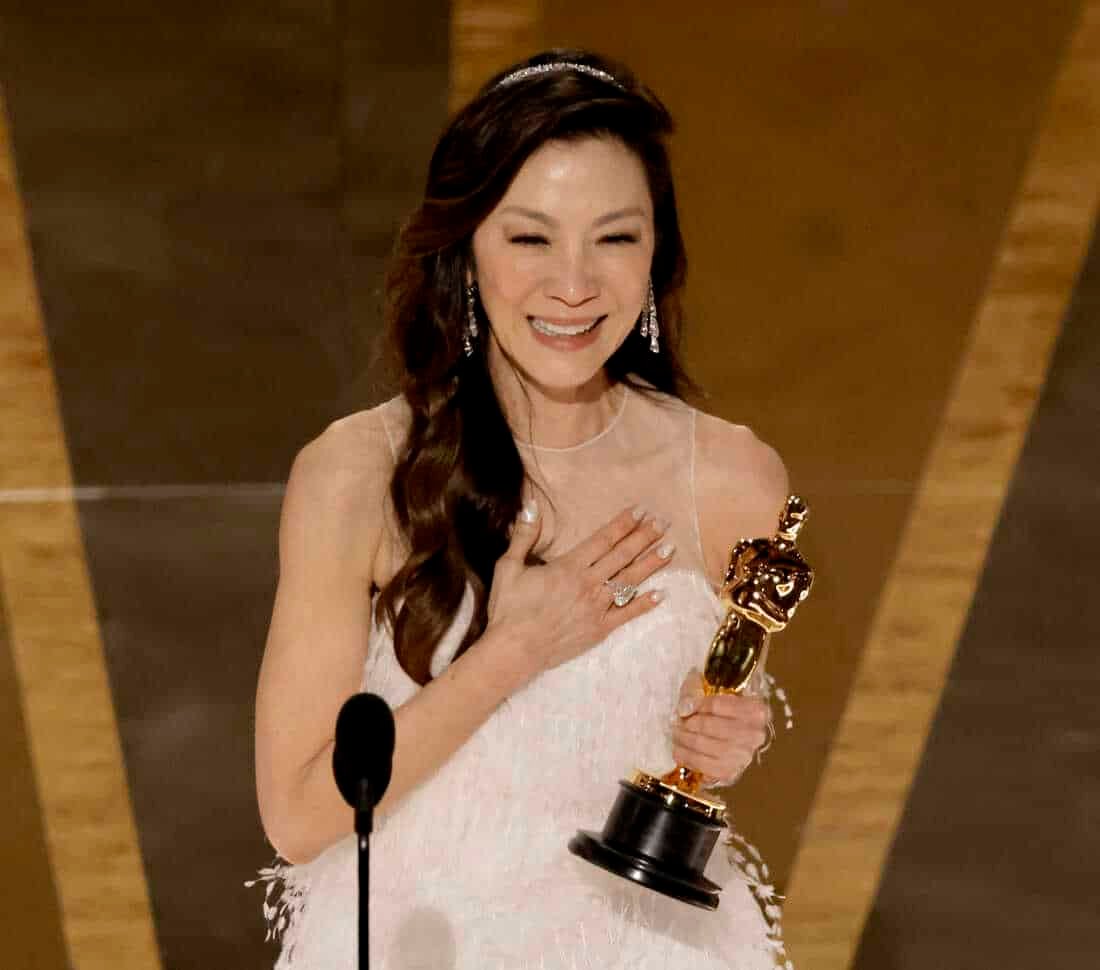Michelle Yeoh has scored a major win for Asian Americans in Hollywood by becoming the first Malaysian-origin woman to win awards at the Golden Globes, Screen Actors Guild and then finally becoming the second woman of color to win Best Actor at the Oscars.
In an op-ed titled “The Crisis That Changed My Life 8 Years Ago Keeps Happening” for The New York Times, Yeoh revealed that she wanted to shift all the praise and attention that was being showered on her towards a cause that was deeply close to her heart: the earthquakes in Turkey and Syria.
Yeoh opened up about how she saw first-hand the tragedies of the 2015 earthquake in Nepal, where she had been visiting with her partner Jean Todt. Witnessing the ruin and destruction around her had pushed the Asian-American actress to become a Goodwill Ambassador for the United Nations Development Program in order to help with the relief efforts.
When devastating earthquakes struck Turkey and Syria in February, mass destruction and havoc followed, leaving behind a confirmed death toll of 50,000 people.
Yeoh writes that in such catastrophic events, women and children bear the brunt, especially when they live in poverty:
“Crises aren’t just moments of catastrophe: They expose deep existing inequalities. Those living in poverty, especially women and girls, bear the brunt. In the immediate aftermath of a disaster, lack of sanitation, health facilities and safety disproportionately affect women. In my time as a goodwill ambassador, I have seen up close how women and girls are often the last to go back to school and the last to get basic services like clean water, vaccines, identity cards and counseling. They are typically the last to get jobs and loans.”
Which is why, Yeoh urged that more women should be brought in to leadership positions, because they are the essential voices we need in order to rebuild neighborhoods, schools and marketplaces:
“Women must also play leadership roles in the recovery process. But women are woefully underrepresented in the decision making that affects their prospects of survival in times of crisis. This gap has a dangerous effect: Studies have shown that women are hit hardest in disasters. Women and girls are often at a disadvantage when it comes to rescue efforts, and women are more likely than men to suffer from hunger.
We know women sustain their communities. Their voices, leadership and full participation are key to an inclusive, successful and sustainable recovery. This means considering women’s needs, priorities and safety when rebuilding neighborhoods and constructing schools and marketplaces. It means ensuring women have equal access to information, job opportunities and skills training, as well as loans and insurance mechanisms, which are all crucial to regain financial stability.”
Knowing that she is a person with a lot of privilege, Yeoh said that the best that she can do is redirect the spotlight currently on her towards those who often go unacknowledged:
“I’m 60 years old, and I just won my first Oscar. I know something about perseverance, and I am all too aware of what society expects of women. I’m also well aware that my experience can’t compare at all with that of the women heroes I met who are on the front lines of crises. But if I can do one thing with this moment of my professional joy, it would be to point the spotlight on those who all too often go unacknowledged, the women who are rebuilding their communities, taking care of children and older people and putting food on the table. Let’s make sure they are not missing from the room when decisions are being made that affect them the most.”
Read her complete piece here.







